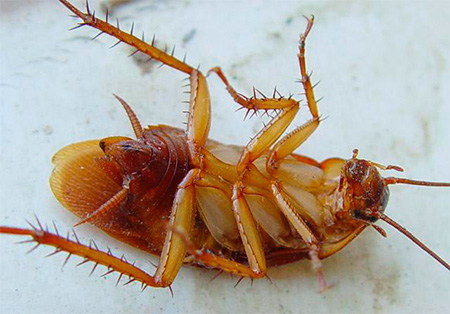
There are real legends about incredible endurance of cockroaches: they live for years and are not afraid of radiation, and they don’t need food and water, and even without a head, cockroaches can exist just as if they didn’t need it at all.
Of course, with strong radiation exposure, these parasites die, like any living creature, they can just take out without harming themselves a dose that is 15 times as safe for humans. But whether they are legends about the fact that the cockroach lives not only without water and food, but also without a head, and generally how many cockroaches live, you still need to figure out ...
Cockroach Life Stages
All cockroaches have an incomplete development cycle, i.e. without the stage of transformation of the larva into the pupa.
- In the greater part of the female, after fertilization, they lay eggs in the oteca (a small light sac) and carry it on the stomach.Over time, the library darkens and begins to swell from eggs grown inside, which takes from two to four weeks.
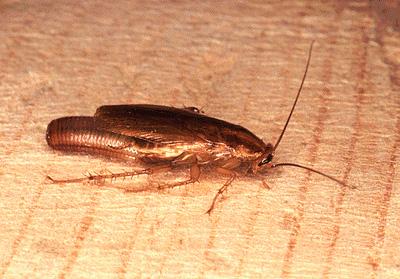
- Some species of females shed their oteka in a secluded (warm and humid) place, most often in a kind of hard-to-reach slot, where tiny ones hatch from it. white cockroaches (nymphs) about 3 mm long. In other species, females carry a hole on themselves until the eggs hatch and even care for them for some time afterwards.
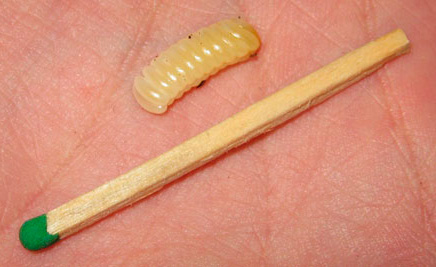
- Over time, the nymphs darken and their chitin covers become hard. After passing stages of several molts, the nymph turns into an adult, which is very common red cockroaches takes about 2 months in the warm season (at a temperature of 30 degrees and above) and up to six months at a temperature of 22 degrees. The lifespan of an adult red cockroach individual (imago) is 20-30 weeks.
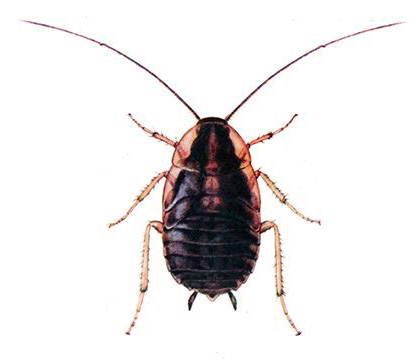
It turns out that since the nymph hatching, the Prusak theoretically lives for about 9-12 months, if nothing interferes with it.
there is types of cockroachesliving for several years, which includes the black cockroach (can live up to two years). The total number of individuals in a colony can increase thousands of times in 3-4 months after a small number of parasites enter the dwelling.This interval is explained by a longer, than in males, long life of females, which are very fertile, as well as by the long development of eggs.
Can cockroaches live without food?
These insects can actually go without food for quite a while. Red cockroaches live without food for up to 40 days, and blacks for up to 70 days. This is due to the fact that they are cold-blooded creatures (poikilothermic), which means that they do not need to expend energy to maintain a certain body temperature.
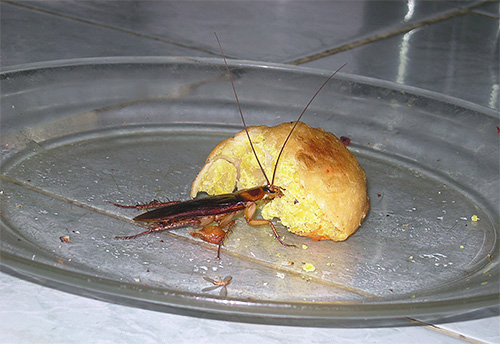
The metabolism of such organisms is 20 times slower than that of warm-blooded animals, and it is enough for a cockroach to take food once to live for a long time (even a few weeks) without experiencing hunger. On the other hand, the main way of energy supply to poikilothermic organisms is external sources, therefore cockroaches live only in heated dwellings, and at subzero temperature their numbers drastically decrease.
Water needs of cockroaches
Despite the fact that cockroaches live for several weeks without food, they die within a week without water. This is due to the fact that water plays a crucial role in the life of any organism, since it is a structural component of the cell, and almost all metabolic processes consisting of a chain of chemical reactions occur with the participation of water.
Cockroaches do not live for a long time without water and prefer to eat hydrated food (waste), because water is necessary for the digestion process itself, for the salivary glands and the circulatory system to work.
The remarkable heat-conducting properties of water also determine its important role as a thermostat in living beings. Thus, the release of excess fluid through malpighian vessels on the body saves from overheating of cockroaches, and the nocturnal lifestyle and waterproof chitinous covers, on the contrary, help to save water in the case of low humidity and too high temperature.
Do cockroaches live without heads?
No matter how strange this question may sound, the answer “yes, a cockroach lives without a head” sounds even more strange.
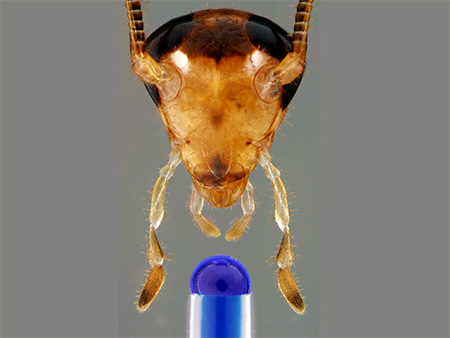
American scientists to study the ability of these insects to reproduce conducted a series of experiments on their decapitation. After that, the researchers came to the conclusion that not only the body of a cockroach lives without a head, but its head (placed in a cool place and fueled by a special solution) may well exist without a body. In their turn, devoid of heads and sealed with special wax in the neck of the body of cockroaches live in the flask for several more weeks, according to entomologist K. Tipping.
In order to understand why this is possible, it is necessary to understand that all the life-support systems of insects (nervous, circulatory, digestive) are quite different from those of humans. Thus, the loss of a person’s head is fraught with deprivation of a critical amount of blood, a drop in blood pressure and a disturbance in the supply of oxygen, and with it, important nutrients to the internal organs.
In insects, however, the circulatory system is open, there are no thin capillaries in it, and pressure does not play a decisive role in it. According to the physiologist and biochemist J. Kunkel, if the cockroach is torn off its head, the neck vessels are simply sealed with clotted blood and the circulatory system continues.
Of course, the food still enters the digestive system of these parasites through the mouthparts. However, a cockroach can live for 9 days or even longer without a head, as it can go without food for quite a long time, having a greater chance of being destroyed by mold or other microorganisms than die of starvation.
For the normal process of breathing, a person needs the head, as it contains the mouth and nose, through which air actually flows, and the brain, which controls this process.In cockroaches, the respiratory process is carried out using special openings on the body, called “spiracles,” and a network of small tubes, the trachea. In this case, the brain does not participate in breathing, and after the elimination of the head, the body continues to be supplied with oxygen in the same mode.
Moreover, the brain as such is not particularly needed by cockroaches, since they have nerve nodes (ganglia) located at every part of the body, which are responsible for the basic nerve functions at the level of reflexes.
Without a head, cockroaches move their paws, stand up and even move. However, as Nick Strosfeld of the University of Arizona notes, the head of these insects receives a large amount of sensory information from the body, so their brain, deprived of the body, cannot function normally. So, the experiments carried out prove that cockroaches demonstrate memorization skills during training, when the head and body are in inseparable unity. With the separation of the head, of course, these creatures lose their abilities.
So, cockroaches are really incredibly tenacious insects and are able to live without food, water and even without a head for a very long period.The chitinous cover is so strong that, even after slamming this insect with a sneaker, you cannot be sure that after a while it will not move away after the impact and will not run away.
On the other hand, the deprivation of water threatens them with a quick death, so those who wish not only to get rid of uninvited guests, but also to prevent their occurrence in the future, should by all possible means avoid water leaks from taps, pipes and flower pots.
Popular methods of dealing with cockroaches

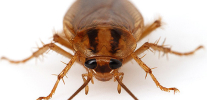
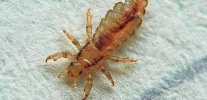
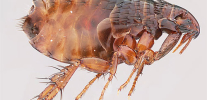
How many days can a regular cockroach live without a head?
9 days.
Wonderful article.
Great article.
He killed cockroaches manually, for 4 nights spent raids in the kitchen throughout the night. He acted according to the principle: first he pressed with eggs and large individuals (he took into account who is easier to hide in an inaccessible place), then small ones, since their speed of movement is much less. He also identified places where eggs were laid.
During the night, killed about 200 individuals. Lonely passengers are now running, but they do not reach))
Once brought all the cockroaches, there was one dead. He lay up his paws and covered with dust for several weeks. Then the legs began to move. Here is such a failed monument. Conclusion: some cockroaches can rise. What can the scientists answer?
So how much can cockroaches live when exposed to high temperatures - 60 degrees or more?
I breed cockroaches and add them to the neighbors below. That's all.
This year is just the INDUSTRY of cockroaches. The whole house was hounded. The result is zero, they still came.